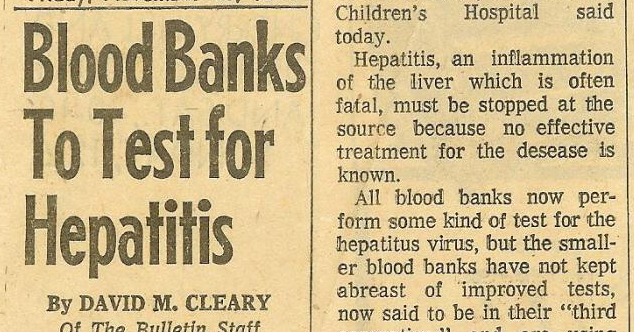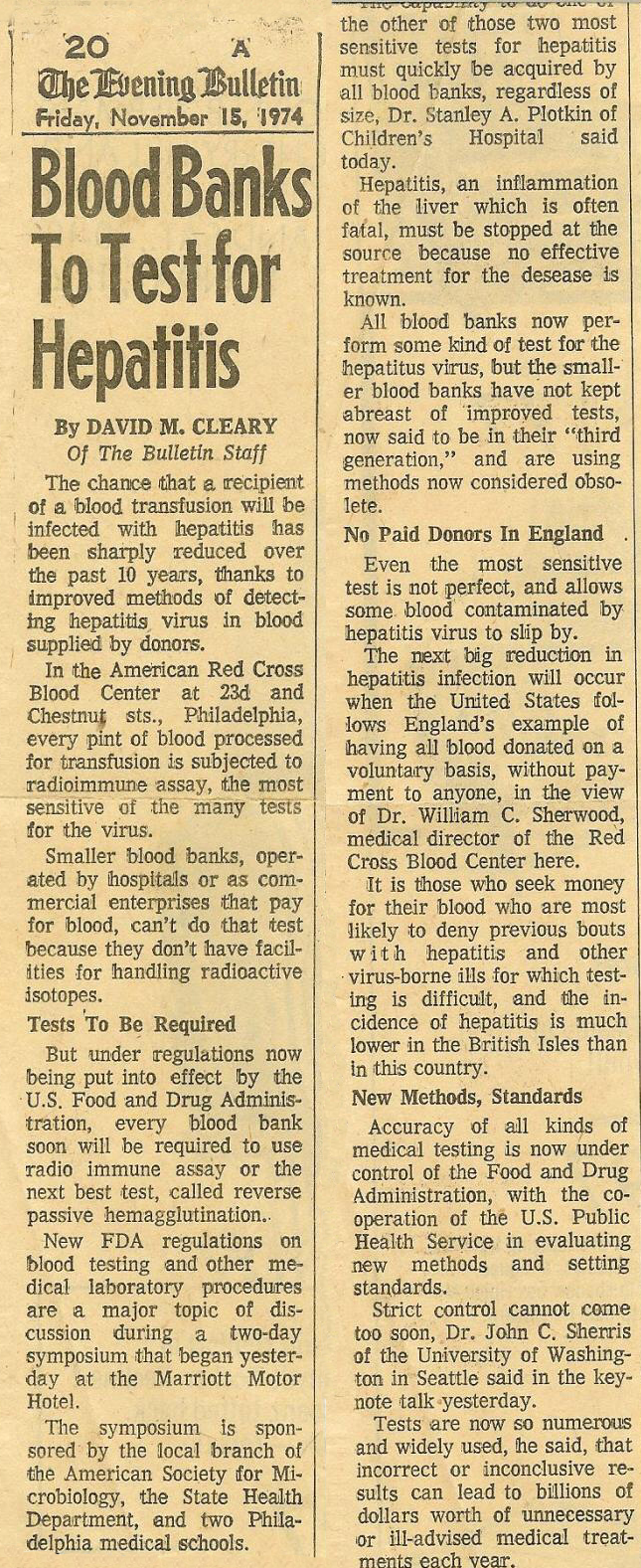
Title:Â Blood Banks To Test for HepatitisÂ
By:Â David M. ClearyÂ
Date:Â November 15, 1974
Source:Â The Philadelphia Bulletin
The chance that a recipient of a bleed transfusion will be infected with hepatitis has been sharply reduced over the past 10 years, thanks to improved methods of detecting hepatitis virus in blood supplied by donors.
In the American Red Cross Blood Center at 23d and Chestnut sts., Philadelphia, every pint of blood processed for transfusion is subjected to radioimmune assay, the most sensitive of the many tests for the virus.
Smaller blood banks, operated by hospitals or as commercial enterprises that pay for blood, can’t do that test because they don’t have facilities for handling radioactive isotopes.
Tests To Be Required
But under regulations now being put into effect by the U.S. Food and Drug Administration, every blood bank soon will be required to use radio immune assay or the next best test, called reverse passive hemagglutination.
New FDA regulations on blood testing and other medical laboratory procedures are a major topic of discussion during a two-day symposium that began yesterday at the Marriot Motor Hotel.
The symposium is sponsored by the local branch of the American Society for Microbiology, the State Health Department, and two Philadelphia medical schools.
The capability to do one of the other of those two most sensitive tests must be quickly acquired by all blood banks, regardless of size, Dr. Stanley A. Plotkin of Children’s hospital said today.
Hepatitis, an inflammation of the liver which is often fatal, must be stopped at the source because no effective treatment for the disease is known.
All blood banks now perform some kind of test for the hepatitis virus, but the smaller blood banks have not kept abreast of imp
roved tests, now said to be in their “third generation,” and are using methods now considered obsolete.
No Paid Donors in England
Even the most sensitive test is not perfect, and allows some blood contaminated by hepatitis virus to slip by.
The next big reduction in hepatitis infection will occur when the United States follow’s England’s example of having all blood donated on a voluntary basis, without payment to anyone, in the view of Dr. William C. Sherwood, medical director of the Red Cross Blood Center here.
It is those who seek money for their blood who are most likely to deny previous bouts with hepatitis and other virus-
borne ills for which testing is difficult, and the incidence of hepatitis is much lower in the British Isles that in this country.
New Methods, Standards
Accuracy of all kinds of medical testing is now under control of the Food and Drug Administration, with the cooperation of the U.S. Public Health Service in evaluating new methods and setting standards.
Strict control cannot come too soon, Dr. John C. Sherris of the University of Washington in Seattle said in the keynote talk yesterday.
Tests are now so numerous and widely used, he said, that incorrect or inconclusive results can lead to billions of dollars worth of unnecessary or ill-advised medical treatments each year.



